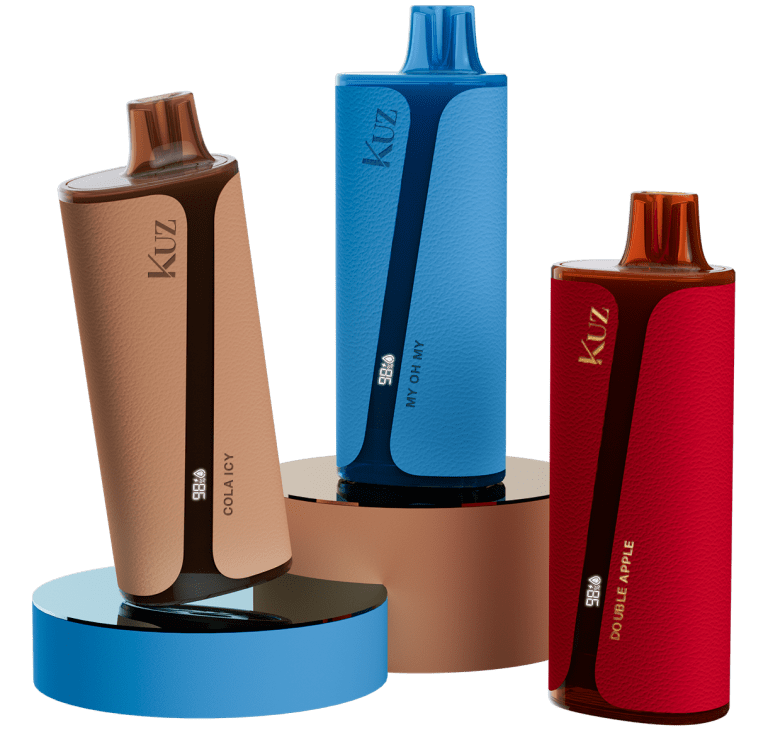Vaping has grown in popularity as a supposed healthier alternative to smoking, but many vapers and curious individuals often wonder: do vapes contain sugar? The answer is more nuanced than a simple yes or no. While vape liquids generally do not include sugar as a core ingredient, the sweetness you taste often comes from artificial sweeteners. Let’s break down the facts about the composition of vape juices, the impact of these sweeteners, and how they might affect your health.
What’s Inside Vape Liquids?
Vape liquids, also known as e-liquids or vape juice, typically consist of a blend of four primary ingredients:
- Propylene Glycol (PG): A colorless, odorless liquid that acts as a base for flavors. It’s commonly used in food and pharmaceuticals and is free from sugar.
- Vegetable Glycerin (VG): Derived from vegetable oils, VG is another key component in vape juices. It has a naturally sweet taste, which can make vapes feel sugary even though there’s no actual sugar present.
- Flavorings: These can range from fruity to dessert-like flavors, giving each e-liquid its unique profile. While some flavorings may include trace amounts of sugar, these are minimal and not enough to impact blood sugar levels.
- Nicotine: Optional in vape juices, nicotine does not contain sugar, but its presence can influence your body’s blood sugar levels.
Do Sweeteners in Vapes Raise Blood Sugar?
Most e-liquids use artificial sweeteners like sucralose or stevia to enhance the taste, especially in dessert or fruit-flavored vapes. These sweeteners are calorie-free and do not contain sugar, making them generally safe for people with diabetes. However, the nicotine in vapes has been shown to potentially affect blood sugar levels by increasing insulin resistance, much like traditional cigarettes. Studies suggest that vaping may slightly increase the risk of developing prediabetes due to the way nicotine interacts with glucose in the bloodstream.
The Health Impact of Sweetened Vapes
While artificial sweeteners themselves may not cause blood sugar spikes, there are some other health considerations. Sweeteners like sucralose and stevia, when inhaled, can irritate the respiratory system. Regular exposure to sweet e-liquids could lead to coughing, wheezing, or even long-term respiratory problems.
Oral health is another area of concern. Sweet e-liquids can promote the growth of bacteria in the mouth, leading to a higher risk of cavities and gum disease. Just as sugary foods stick to your teeth, vaping sweet e-liquids can have a similar effect, even if they contain no actual sugar.
Choosing the Right E-Liquid
If you are conscious about your health, especially when it comes to managing conditions like diabetes or dental health, it’s important to choose your e-liquids wisely. Opt for products that specify they are sugar-free and pay attention to the type of sweeteners used. Additionally, consult your healthcare provider if you’re unsure about the potential effects of vaping on your health, particularly if you have diabetes.
Alternatives to Sweetened Vape Juices
If you’re concerned about the impact of sweeteners, there are alternatives available:
- Unsweetened E-Liquids: These liquids omit artificial sweeteners entirely.
- Nicotine Replacement Therapy (NRT): For those looking to quit both smoking and vaping, NRT products like nicotine gum or patches can help without the sweeteners found in vape juices.
In conclusion, while vape juices typically do not contain sugar, they often include sweeteners like sucralose or stevia to enhance flavor. These sweeteners do not affect blood sugar levels in the same way that sugar does, making them relatively safe for diabetics and those watching their glucose levels. However, the long-term impact of sweetened e-liquids on respiratory and oral health is still under scrutiny. For those concerned about sugar or sweeteners, consider sugar-free or unsweetened e-liquid options. Always consult a healthcare provider if you’re unsure how vaping may impact your health.



